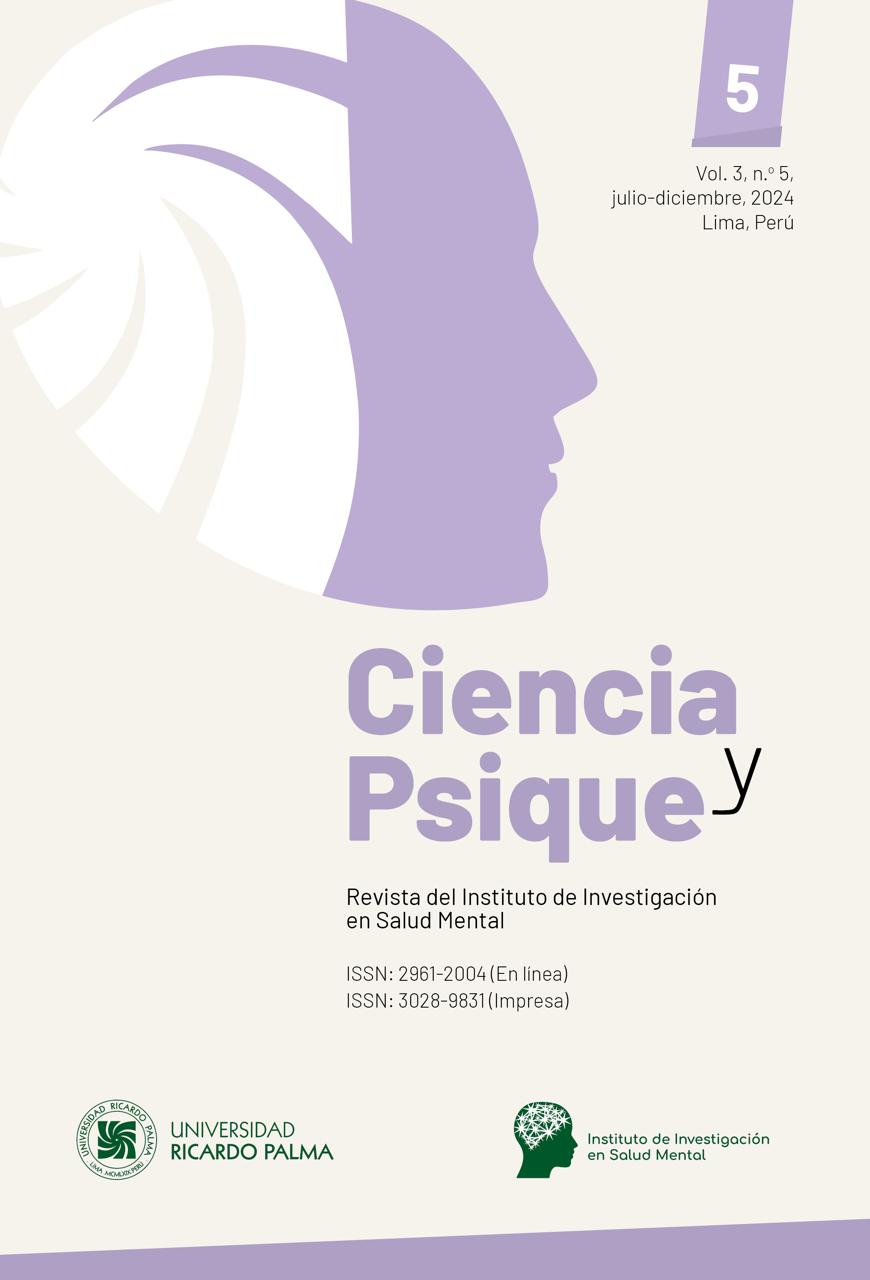ABI-6 psychological scale to measure cognitive reserve in adult individuals
DOI:
https://doi.org/10.59885/cienciaypsique.2024.v3n5.05Keywords:
cognitive reserve, validity, reliability, adultsAbstract
The main objective of this basic-technological research, with a nonexperimental, cross-sectional and quantitative design, is to develop and validate a new instrument called the ABI-6 Cognitive Reserve Scale. This instrument was created to evaluate and diagnose the level of cognitive reserve in adults between 35 and 60 years of age living in the district of Bellavista, Callao. Likewise, the sample included one hundred participants, men and women in the aforementioned age range, who had no disabilities or disabling neurocognitive diseases. The psychometric properties of the instrument were evaluated by means of criterion validity analysis by judges and calculation of Cronbach’s alpha coefficient to determine its reliability. The results showed that the ABI-6 Cognitive Reserve Scale reached acceptable levels of reliability and validity for its application in this specific context.
References
Duckworth, A. L., Peterson, C., Matthews, M. D., & Kelly, D. R. (2007). Grit: perseverance and passion for long-term goals. Journal of personality and social psychology, 92(6), 1087.
Gazzaley, A., & Rosen, L. D. (2016). The distracted mind: Ancient brains in a high-tech world. Mit Press.
Hernández, R., Fernández, C., & Baptista, M. (2003). Metodología de la Investigación. Mc Graw Hill.
Jones, R. N., Manly, J., Glymour, M. M., Rentz, D. M., Jefferson, A. L., & Stern, Y. (2011). Conceptual and measurement challenges in research on cognitive reserve. Journal of the International Neuropsychological Society, 17(4), 593-601. https://doi.org/10.1017/S1355617711000531
Kivipelto, M., Mangialasche, F., & Ngandu, T. (2018). Lifestyle interventions to prevent cognitive impairment, dementia and Alzheimer disease. Nature reviews. Neurology, 14(11), 653-666. https://doi.org/10.1038/s41582-018-0070-3
Pinker, S. (2020). The science of staying connected. Wall Street Journal.
Ramí, L., Valls-Pedret, C., Bartrés-Faz, D., Caprile, C., Solé-Padullés, C., & Castellví, J. L. (2011). Cuestionario de reserva cognitiva. Valores obtenidos enpoblación anciana sana y con enfermedad de Alzheimer. Revista de Neurología, 52, 195-201. https://doi.org/10.33588/rn.5204.2010478
Reynoso-Alcántara, V., Lázaro-Pérez, C., & Cabrera-Pivaral, C. E. (2018). Factores que influyen en el desarrollo de la reserva cognitiva en adultos mayores. Revista Internacional de Investigación en Ciencias Sociales, 14(2), 151-168.
Rodríguez, A. (2022) Influencia de la complejidad laboral sobre la reserva cognitiva. Sesión 208 del Seminario Permanente de Salud en el Trabajo. Facebook Live. https://bit.ly/35GQ7mg
Rodríguez, M., & Sánchez, J. (2004). Reserva cognitiva y demencia. Anales de Psicología, 20(2), 175-186. https://revistas.um.es/analesps/article/view/27301
Ruiz Bolívar, C. (2002). Instrumentos de Investigación Educativa. Fedupel.
Satz, P. (1993). Brain reserve capacity on symptom onset after brain injury: A formulation and review of evidence for threshold theory. Neuropsychology, 7(3), 273-295.
Stern, Y. (2002). What is cognitive reserve? Theory and research application of the reserve concept. Journal of the International Neuropsychological Society, 8(3), 448-460.
Stern, Y. (2009). Cognitive reserve. Neuropsychologia, 47(10), 2015- 2028.
Zanto, T. P., & Gazzaley, A. (2017). Cognitive control and the ageing brain. The Wiley handbook of cognitive control, 476-490.
Downloads
Published
How to Cite
Issue
Section
License
Copyright (c) 2024 Ciencia y Psique

This work is licensed under a Creative Commons Attribution 4.0 International License.




